So here I am in a little town called Wamena which is located at just over 5000ft elevation in what’s known as the Baliem Valley in the central Papuan highlands. It’s also vaguely known as Shangri-La which is what the press dubbed the area after a crash at the end of WWII involving a US C-47 and the ensuing rescue mission for the survivors. If you’ve not read the book Lost in Shangri-La yet, I strongly recommend you do so, as it’s an amazing story of survival and gives a nice history of the area before the outside world had made proper contact with the natives of the Baliem Valley.
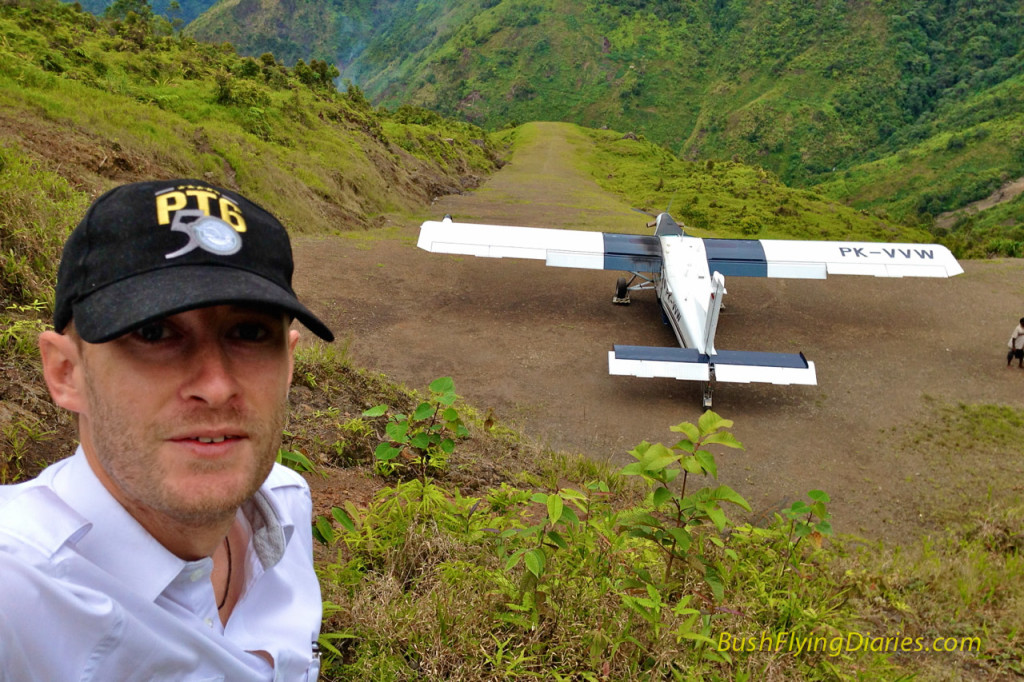
But what am I doing here you might ask? Well, it’s with much sadness I have to announce that our Nabire base (my usual home) has been closed due to a lack of flying from there. It’s a little more complex than I can go into on this blog but suffice to say for the foreseeable future, I won’t be flying from Nabire any more. Hopefully that will change but who knows. In the meantime, I’m now set to fly from our most challenging base, Wamena. But not before I’ve had a bit more training to get familiar with the area. Just look at this shot from the Garmin G950 screen of the area to the south west of Wamena:
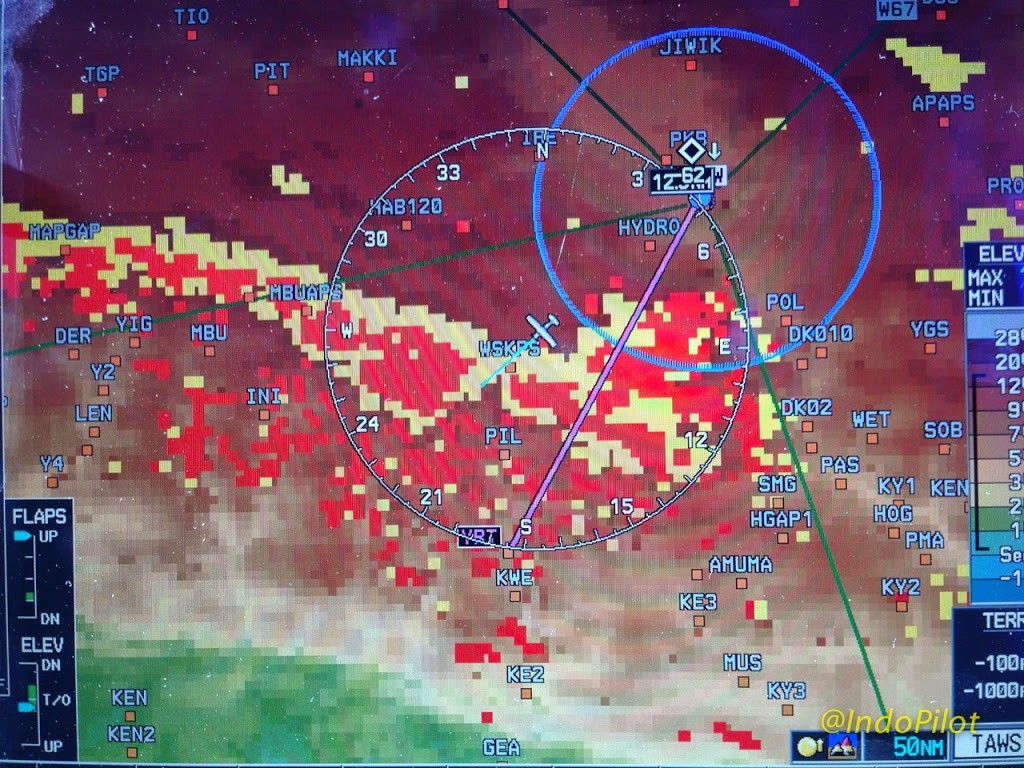
As you can see there’s quite a few landing sites out here. And it’s the same to the south-east and to the north. Basically, there are a lot of airstrips within a 50nm radius of Wamena and most of them are only accessible with a STOL (Short Take-Off and Landing) aircraft such as the Porter. As anyone who knows me will know, I love going to new places so the last week has been some of the best flying I’ve ever done, going to over 20 or so new airstrips with my route check pilot, Brandt Gillard (he wanted me to mention him by the way, so there you go chap you’re on my blog now!).
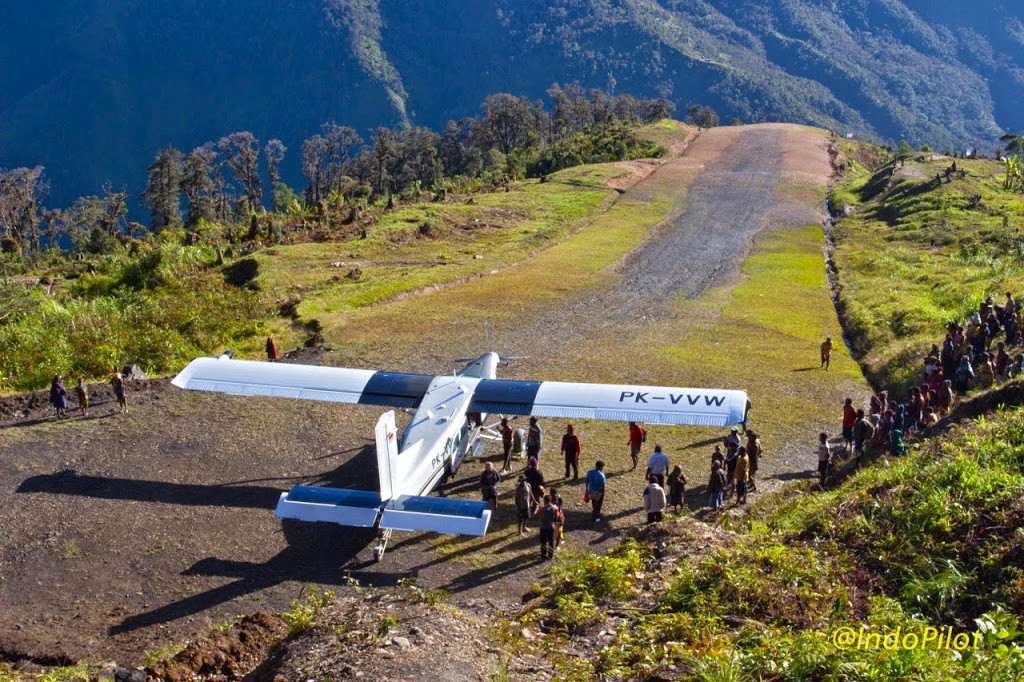
For anyone who follows me on Facebook, Twitter or Instagram (if not why not?), you’ll have already seen some of these photos of the fun looking airstrips I’ve been landing on during my training over the past week. Hopefully I’ll get to take plenty more of these sorts of photos and even get the Garmin VIRB action camera out now that I’ve been released to fly on my own. Sorry about that mum but there’s going to be plenty more photos and videos of scary looking runways – perhaps get dad to vet them before you look…
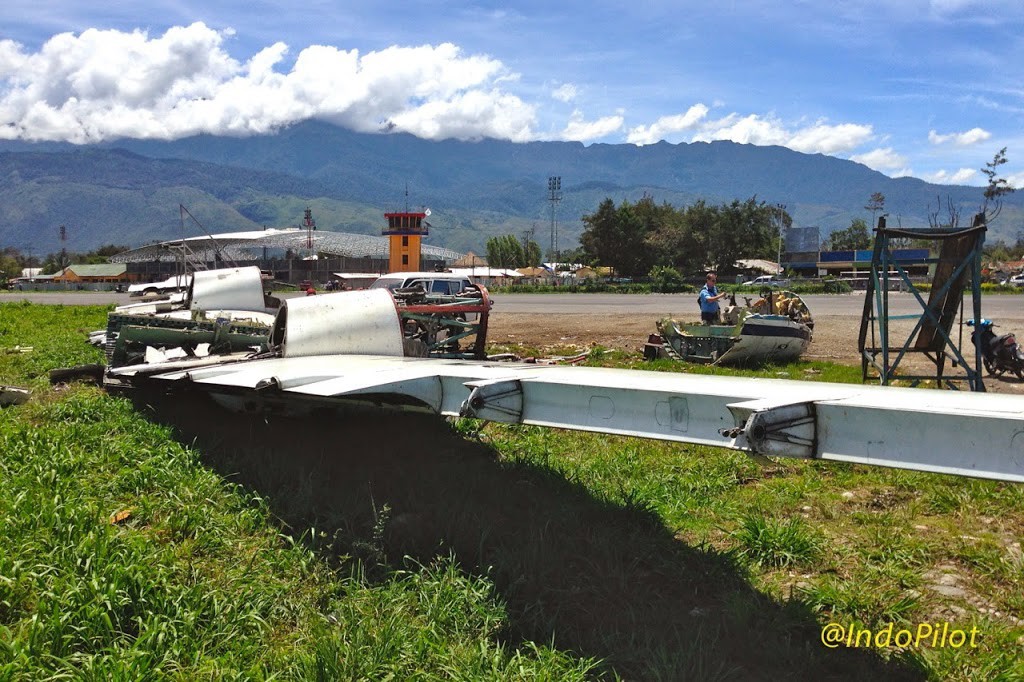
My training over the last week has mostly been focused on getting familiar with the area. Wamana airport is incredibly busy with flights coming and going every few minutes, so it’s vital to get to grips with the various joining reporting points surrounding the airport to avoid a close call with a another aircraft. And we’re not talking just bush planes either; there’s a number of 737s operating into the 2000m long runway too (imagine that with such a big jet!). You’ve only got to have a look at the accident statistics to see how hazardous Wamena is thanks mostly to the fickle mountain weather (it’s at 5100ft elevation remember).
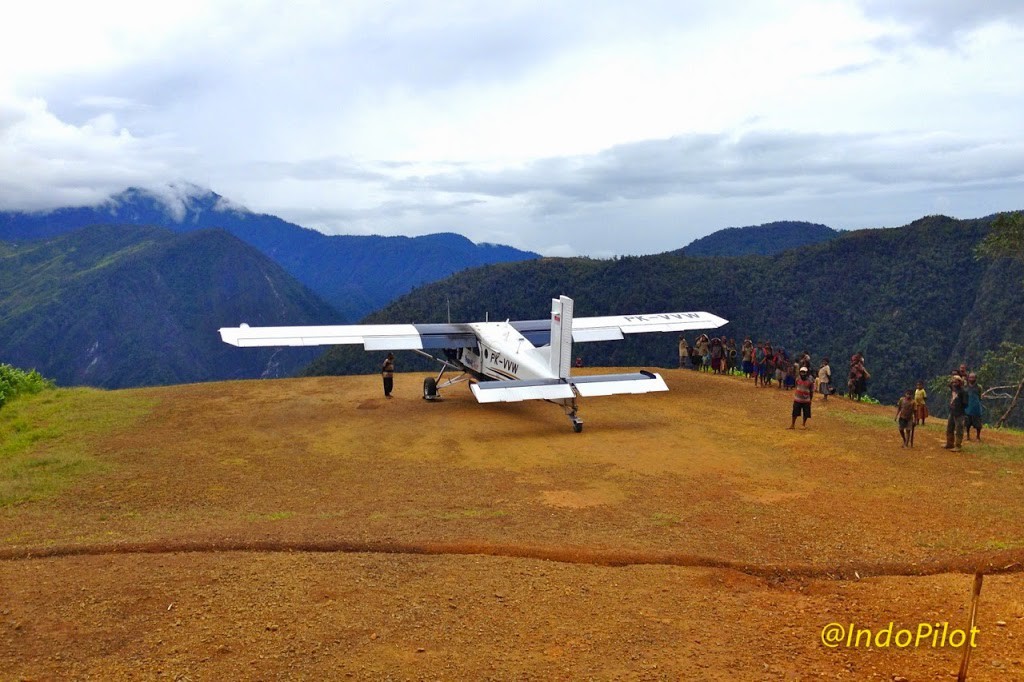
I’ve really enjoyed flying with Brandt over the last week and it’s been great to get input on my flying from someone more experienced than myself. As someone once said to me, the moment you think you know everything out here in Papua is the moment you kill yourself. So I’m always happy to accept input from anyone with a better idea on how to do something I either thought I knew or was struggling with.
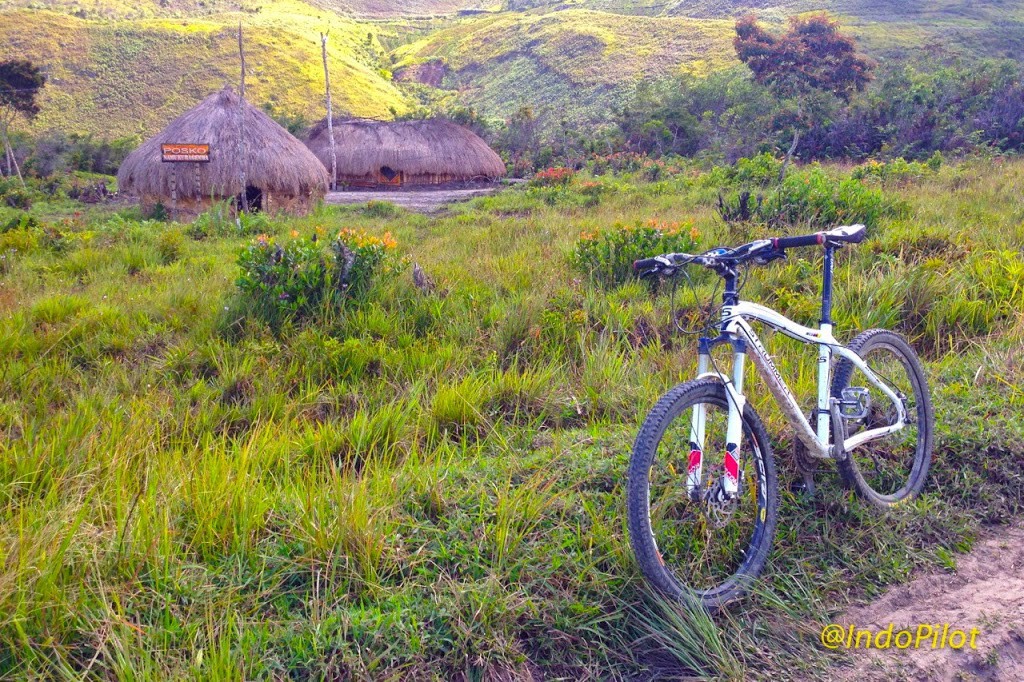
Aside from the flying, Wamena is surrounded by mountains and small Papuan villages, and so there’s lots of walking trails which are perfect for mountain biking and combined with the elevation changes make this a bit of a revelation compared with Timika and Nabire which are relatively flat by comparison. In-fact, after flying I’ve been spending quite a bit of time exploring the surrounding hillsides for fun looking trails. If you’ve on Strava, you can see my explorations here.
As for the future, hopefully I can spend more time up here in Wamana as the flying is incredible and varied but as always in my job, I’m never sure where I’ll be from one week to another. Fingers crossed!
Discover more from Matt Dearden
Subscribe to get the latest posts sent to your email.
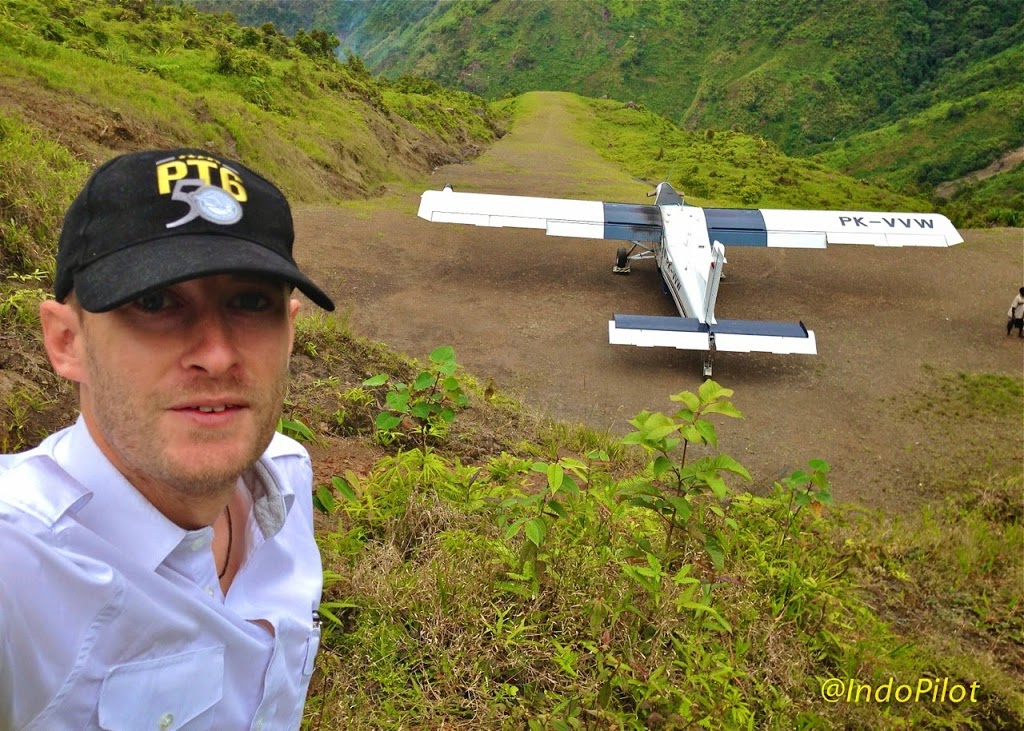
Hi Matt,
thanks for the amazing blogs and respect to your decision to
leave your 9-5 job.
I didn’t have the guts to do something similar.
Sometimes I regret my choice against the further pilot training
… especially after reading your blogs ;-).
How long did it take to land on these airstrips?
I did the PPL on an 480m plateau airstrip in southern Germany and I still
find it challeging.
Always happy Landings!
Steffen
Hi Steffen,
I’ve been flying the PC-6 for over three years now and have slowly build up my experience over this time to be able to safely land on these sorts of airstrips. You can read the full story of how I got to be where I am here: http://www.bushflyingdiaries.com/my-story
Your home PPL airfield sounds like a lot of fun!
Cheers
Matt
Hi Matt,
it is a lot of fun :-)!
http://www.airports.de/component/option,com_mtree/task,viewlink/link_id,143/
Looks like a lot of fun! Nice one 🙂
Matt,
You’re doing the job I’ve dreamed of. But I never had the money nor opportunity to do. At the age of 52 I’m way too old to start!. Far be it for me to live my life through the dreams of others, but for me, dreams are all I have. So please, keep the video’s coming! Post them to YouTube… use some GoPro type cameras and get heaps of 1080p footage… Love to see some complete flights from various angles… But mainly your cockpit routines and how you navigate/aviate too would be fascinating.
I saw a TV show here in Perth (I think on SBS) the other night about some pilots flying Caravans – one bloke took his Dad (and ex airline pilot up), that would be a thrill.
Anyway, stay safe and you must remember that old saying about Old-bold-pilots!
Regards,
David
Hi David,
I shoot plenty of video out here, don’t you worry. I just never seem to have the time to edit them into something people might want to watch! You’re not the first person to ask about seeing a flight from start to end, so I’ll try and work on something (although I think I’ll cut down some of the cruises as there’s not much happening usually unless the weather’s being awkward).
I know the TV series you mean: http://www.bushflyingdiaries.com/2014/08/worst-place-to-be-a-pilot-tv-show.html I’ll be on the next couple of episodes on SBS ,so hope you keep watching it!
Cheers
Matt
PS I’m not so young any more and certainly not as bold as TV makes it look!
Hi Matt!
On PPRuNe I found the link to Worst Place, and from there I stumbled onto your blog. Awesome! I love real-life adventure stories. I have indeed read Lost in Shangri-La. Crazy story, that one!
Having lived in Alaska for a time I am more familiar with bush flying there and what the 20th century has brought to the Native villages. Lots of alcoholism and diseases like TB. This makes me wonder: is the Indonesian government in any way restricting access to the villages you frequent? Is the indigenous population being protected? Do they want to be protected? Or do they want 21st century gadgets? I imagine there’s people with grand visions of how to best exploit this unique situation. Hope they don’t get the chance. Maybe a topic for a future blog post? If I missed it in a previous one–my apologies.
I put Papua on the weather page of my phone and it appears a lot more rainy and thundery than Worst Place or your pictures would indicate.
Safe flying!
Annemiek
Hi Annemiek,
There are some restrictions on what can be taken to certain areas of Papua, namely alcohol, but it’s mostly fairly unrestricted. Indonesia’s rule of Papua and it’s people is not something I can really discuss on this blog but there are plenty of sources online if you want to read most about it.
From what I can see, the indigenous people do seem to be embracing many modern conveniences like electricity, modern food items, modern building materials/methods and mobile phones. Quite a few villages now have a cellphone tower which has only happened over the last three years or so.
The weather out here is very changeable and it rains a lot! Photos with washed out, rainy skies don’t look so nice on a blog so I don’t post that many although there are some from time to time. It certainly makes the flying even more challenging at times.
Cheers!
Salam kenal Matt.
Senang sekali membaca kisah-kisah pengalamanmu terbang di Papua. Sungguh berterima kasih akan semangatmu menerbangkan saudara-saudara saya sebangsa, rakyat Papua.
Selamat selalu untukmu.
Legit. As usual.
More stories, please.
*surely have to read the book you recommended*